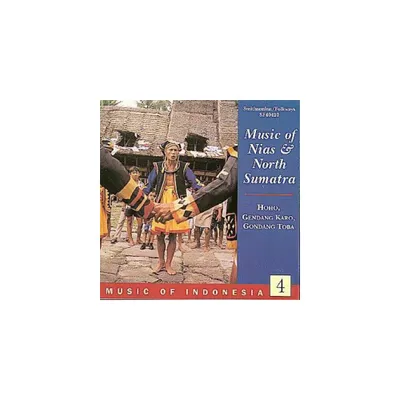Home
Dipl.-Ing. Arsitek: German-trained Indonesian Architects from the 1960s
Loading Inventory...
Barnes and Noble
Dipl.-Ing. Arsitek: German-trained Indonesian Architects from the 1960s
Current price: $39.95


Barnes and Noble
Dipl.-Ing. Arsitek: German-trained Indonesian Architects from the 1960s
Current price: $39.95
Loading Inventory...
Size: OS
*Product Information may vary - to confirm product availability, pricing, and additional information please contact Barnes and Noble
In 1960 and 1961, a group of young Indonesians completed their studies in Berlin and Hanover with a degree in architecture (Diplom-Ingenieur Architektur; in Indonesian: Dipl.-Ing. Arsitek).
Most of these graduates returned to Indonesia. At that time, the country sought independent forms of built expression to represent a modern civil society with contemporary structures that would reflect the culture and accommodate the climate. During this highly dynamic period, those who returned soon became influential architects in their homeland. Around a third of the graduates remained in Europe, where they pursued successful architectural careers in Germany, Switzerland, or the Netherlands.
Using the final diploma projects of ten of those students as a starting point, Dipl.-Ing. Arsitek: German-trained Indonesian Architects from the 1960s provides multifaceted insights into this little-known aspect of German-Indonesian relations. Many of the cited plans and documents come from the architects’ personal archives and are now available to the public for the first time. Fifteen exemplary buildings are documented in their current context in new photographs produced for this project, highlighting their unique characteristics and qualities.
Most of these graduates returned to Indonesia. At that time, the country sought independent forms of built expression to represent a modern civil society with contemporary structures that would reflect the culture and accommodate the climate. During this highly dynamic period, those who returned soon became influential architects in their homeland. Around a third of the graduates remained in Europe, where they pursued successful architectural careers in Germany, Switzerland, or the Netherlands.
Using the final diploma projects of ten of those students as a starting point, Dipl.-Ing. Arsitek: German-trained Indonesian Architects from the 1960s provides multifaceted insights into this little-known aspect of German-Indonesian relations. Many of the cited plans and documents come from the architects’ personal archives and are now available to the public for the first time. Fifteen exemplary buildings are documented in their current context in new photographs produced for this project, highlighting their unique characteristics and qualities.


















